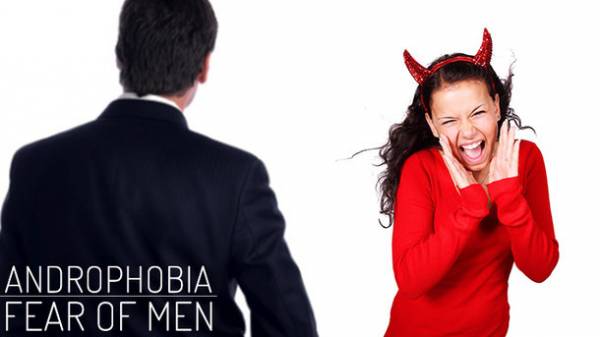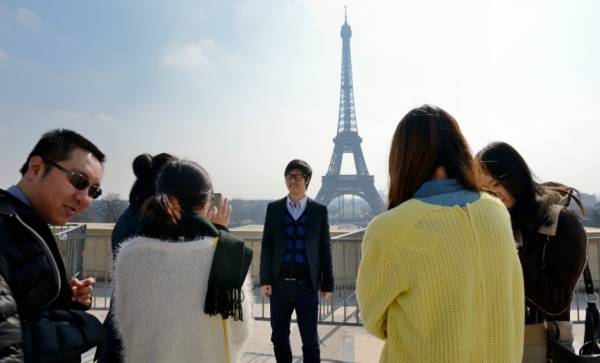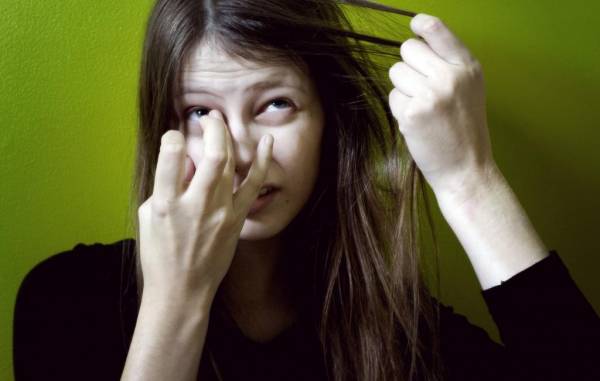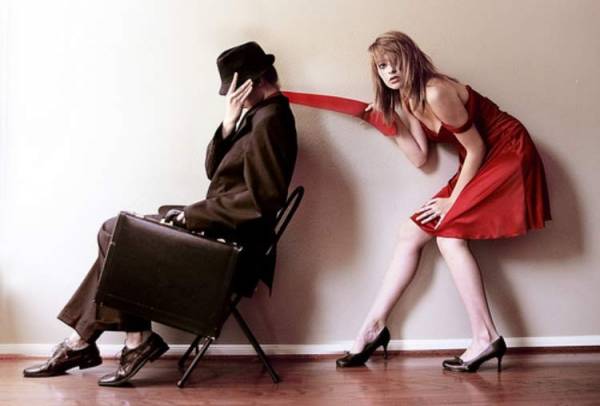
“Schizophrenia, as was said”: many people believe that schizophrenia is the only mental illness, and the rest “so, the problems with character.” However, our psyche is fragile, and strange behavior can hide an unpleasant ailments. How ridiculous are the symptoms (and the consequences — serious), says “Popular Mechanics”.
Cotard’s Syndrome. If you think that your friend has redefined zombie movies and raving, look at him more closely. Perhaps it’s Cotard’s syndrome is a rare disease, when a patient feels that he is dead, it does not exist, it has no organs, blood, etc. the French neurologist Jules Kotar first described the disease, calling it “the syndrome of denial”. His patient was a woman, who flatly refused to eat because he denied that there was life in her, saying that she’s already dead — and in the end died of exhaustion.
The three stages of the disorder, from mild depression to chronic depression and mania. For all cases characterized by isolation and inattention to yourself — in General, it is logical: why to take care of yourself if you’re dead? As a rule, delusional, and suffering from Cotard’s syndrome — bright and colorful, full of fantastic ideas and often associated with maniacal delusions of grandeur. People can argue that everything is dead, and because he was infected with the deadly disease. Cotard’s syndrome is usually associated with other mental disorders and treated with antipsychotics.

The Syndrome Of Paris. “To see Paris and opcijami” — such a scenario, without any jokes, could threaten impressionable tourist. But not just any, but a tourist from Japan. This is one of the rare mental disorders that affects the residents of a particular country. Like other syndromes, triggered by culture shock, Paris syndrome manifests itself in those who were initially prerequisites for mental disorders, and a visit to the other side of the world, a sudden change in environment worked as a detonator.
The basis of the Paris syndrome — a feeling of great frustration. The fact that, in Japan, glorified the cult of Paris. Almost every Japanese I am sure that Paris is the quintessence of beauty, fashion, love and world harmony. This cleverly playing marketers of French fashion brands, trading not so much the product of specific fashion houses, as “the idea of Paris” at all. And now imagine the person who saves half his life on a trip to the one — Ah! — Paris to lay your unworthy hands to the “Great and Wonderful”, and come to Paris. With its ethnic cauldron, bustle, typical of any big city, etc., the reality is not so disappointing, what a tourist takes a nervous breakdown, often leading to suicide. Paris syndrome occurs often enough, and at the Embassy of Japan in France has a dedicated hotline for those who suddenly feel ill.

Stendhal syndrome, Florence syndrome is another disease associated with the tourism and culture shock. “Every year dozens of tourists fall down in a swoon or hysterical somewhere on the way from the Uffizi to the Academy. The feeling of depression occurs rapidly, along with the guilt…,” writes Peter Weil in his book “Genius of place”. For the first time, similar to the disease described by Stendhal in his notes on travel in Italy (“Naples and Florence: a journey from Milan to Reggio”): he experienced discomfort from the abundance of masterpieces in Florence.
Symptoms of Stendhal syndrome are varied, but in General the first stage it looks like a strong, deep impression of the artwork, and then comes the anxiety, agitation, increased heart rate, fainting, severe headaches, hallucinations, etc., Some observers are beginning to “feel” like a painting or become part of it. This is quite a terrible process is well depicted in Dario Argento’s “the Stendhal Syndrome”.
Syndrome Of Diogenes. Even those who have not read the ancient philosophers, must have heard about Diogenes, who lived in a barrel. He, however, did not do it out of savings, or desire to retire. However, this set of symptoms as a desire for isolation, apathy and accumulation, called Diogenes syndrome. Sometimes there is another name, the syndrome senile squalor — because most often the disease affects people age suffering from senile disorder.

Autophagy — the word comes from al-Greek “autos” (i.e. “myself”, “yourself”) and “phagein” (“is”), ie, essentially self-absorption. This term is used in two meanings: to describe a natural process where the body consumes its own tissue (for the study of these mechanisms, by the way, in 2016, were awarded the Nobel prize in physiology or medicine by Japanese scientist, asinari Osumi), and to name the mental disorder.
Mild autophagy is found almost at every step, appearing, for example, in the habit of biting your nails or chew dead skin on the lips is the skin. Such things, of course, no reason to run to a psychologist, but you should not ignore them — they signal an increased level of stress. But in more severe forms the person may injure itself, turning to amocanebis. The nature of the disorder is not yet known.

Trichotillomania — this compound word is called compulsive pulling of hair (not only on the head, but also over the entire surface of the face and body including eyebrows and eyelashes). The person can not see this process, not fixing attention to their actions, or even to deny it. Most often, the syndrome is accompanied by either stress, or other mental disorder, and organic brain diseases. In recent years worked out a version that some people suffering from trichotillomania, have damage of the gene. However, the genetic nature of the disease is not currently confirmed.

Androphobia, in a nutshell, it is the fear of men. We emphasize: the abnormal fear of men. Reason it individual, they can hide in some past trauma or other disorders, such as social anxiety. Of course, all this sounds like an occasion for humor on gender topics, but the symptoms are not as funny as it may seem. Androphobia itself on the somatic level, i.e. on the background of fear, there are real physiological changes: shortness of breath, sweating, dry mouth, etc. Curiously, it is not typically feminine disease — androphobia, though rarely, suffer and men.

Bibliomania. No, not to be confused with bibliomania with bibliophiles! The last is about the love of books, and the first one about gathering an unhealthy, pathological passion for collecting books. Like any craze of hoarding, it is the desire of possession (remember “my precious”, this is about the same). And the obsession to acquire books not necessarily connected with the desire to read them. This behavior may be the result of a neurotic defense mechanism associated with any trauma in your past or other disorders.
How to detect bibliomania? You would think that if someone from your environment is accumulating an insane amount of books, feels a compulsion to their acquisition and a sense of relief when buying, and also not ready to part with them — that is not ready neither to give nor to lend it to you (it may not be greed, but a symptom).

Boanthropy. If you have never heard before such a term, do not be surprised how awkward it sounds. Boanthropy is a mental disorder, when a person thinks like a cow or a bull. First it appears on the level of fantasy, then obsession, and then the person starts to behave as cattle. Without any metaphors: eats grass, Moos, butting.
This disorder is treated with hypnosis, but the important thing is that the treatment is necessary. The syndrome not only affects the human psyche, but in the end it affects the internal organs: in our digestive system is not adapted to absorb a quantity of grass and hay that they eat people, patients with boanthropy.

Erotomania. “Trunks, you’re a secret sex addict!” — said the heroine of “the Pokrovskie gate”. However, if that were true, the film would have hardly survived Comedy. Erotomania is a crazy illusion that people are in love with somebody. Sound sad, isn’t it? The objects of scopophilia are most often celebrities, which emphasizes the unhealthy nature of ideas. Erotomania can take years. People believe that it someone is showing secret signs of attention, sending all sorts of signals, including telepathic. Sounds like a desperate non-reciprocal love, but it should be taken seriously: erotomania usually occurs with other mental disorders, such as schizophrenia or manic-depressive psychosis.








